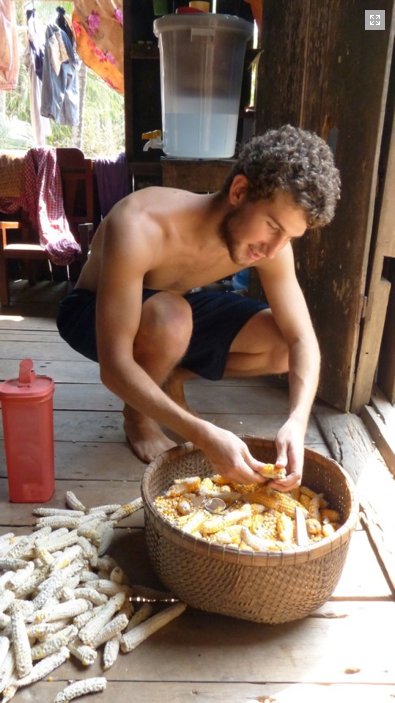So, I guess when people go on Study-Service Term to a foreign country they’re supposed to have some sort of revelation about the truth of the world, or diversity, or something like that.
I mean, really, you spend three months living with host families, trying to immerse yourself in an unfamiliar culture, speaking languages you have more or less of a grasp on and learning how to eat rice with everything (like watermelon or ants). How are you going to run the gauntlet of SST and not become a beautiful, enlightened butterfly, with special powers such as knowing how to fix the world, and understanding why the U.S. sucks more or less than you thought it did beforehand?Some people told me before I went that SST was about to be the most important experience of my young life, and that I would be changed forever, and some other things like that. So naturally I went to Cambodia a little skeptical, because what do some people know anyway.
But I was also hopeful that my SST baptism would be accompanied with a great deluge of wisdom and worldly maturity, because being cynical is only fun for hipsters. It’s also fun for some of the people that write for The New York Times and angry political pundits on television.
And so, I wrote a bunch of stuff in a journal while I was there, with the goal of distilling some sentiment that I could later hold up as my trophy of intellectual advancement, as a new cornerstone of knowledge for my Tower of Babel. And lo and behold, I’ve got it!
After the sort of obligatory couple of weeks it took to assimilate to a relatively distant society (in terms of history, religion, culture, government, distance), my experience in Cambodia began to normalize. I spent a lot of time sitting in a park with my host brother Oudam and his friends. Sometimes playing with his girlfriend’s dog, Hachiko. Sometimes just watching people walk by.
And so I thought, despite us coming from different cultural contexts, histories and religious backgrounds, we are all human, and the similarities of our human experience make us far more alike than different.
I had been expecting to discover that the world was a place full of confusing diversity and difficult divides, and in Cambodia I was wrong. Renae Weaver’s and my Cham Muslim host mother in the countryside was so much like my mother in the U.S. that a few times I told her, “Ma twer nih doich m’daay knom nov Amerik dae!” (You do this like my mother in America!)
And our host mother has a son who often goes out to drink in the evenings (and he thinks his parents don’t know). And my mother has a son who maybe sometimes goes out to drink in the evenings (and he thinks his parents don’t know).
I biked halfway back to Phnom Penh from my service location, and along the way I would stop and buy water from street vendors along the main roads. They would ask me where I was coming from, what I was doing in Cambodia and if I was looking for a Cambodian wife. I would sit and talk with them for a half-hour, taking a moment to brush by their reality, and understand as we talked that the vendor and I were quite the same.
By the end of SST, I began to think that the de-centralized nature of humanity, with people living in tiny communities everywhere on Earth, having isolated, utterly normal lives, is the very thing that gives humanity a center.
Probably a lot of people realize this by doing less drastic things, but I, a person of little faith, had to go halfway around the world for three months to realize that humans are all from planet Earth.
Henry Stewart is a music and biochemistry double major. This semester he did SST in Cambodia.



